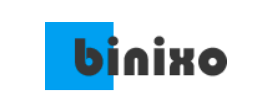In the Philippines, the Securities and Exchange Commission (SEC) plays a crucial role in regulating the operations of online lending companies. With the rise of digital platforms offering quick and convenient loans, it has become imperative to establish guidelines and safeguards to protect borrowers from predatory lending practices.
The SEC, as the primary regulatory body, has issued regulations that aim to ensure fair and transparent lending practices in the online lending industry. These regulations not only protect borrowers but also promote a healthy and sustainable lending environment.

Loan type
Short termFor a period of
728 daysRate ()
365.00% / yearLoan amount
25000 ₱Approval in
5 minutesFirst loan free
no
Loan type
Short termFor a period of
180 daysRate ()
0.00% / monthLoan amount
20000 ₱Approval in
5 minutesFirst loan free
no
Loan type
Short termFor a period of
180 daysRate ()
0.00% / monthLoan amount
25000 ₱Approval in
5 minutesFirst loan free
no
Loan type
Short termFor a period of
180 daysRate ()
0.00% / dayLoan amount
25000 ₱Approval in
15 minutesFirst loan free
no
Loan type
Short termFor a period of
180 daysRate ()
0.00% / dayLoan amount
25000 ₱Approval in
15 minutesFirst loan free
noProtecting Borrowers
One of the key objectives of the SEC’s regulations is to protect borrowers from predatory lending practices. These practices often involve exorbitant interest rates, hidden fees, and aggressive collection tactics that can trap borrowers in a cycle of debt. By setting clear guidelines, the SEC aims to prevent such practices and promote responsible lending.
Under the regulations, online lending companies are required to disclose all relevant information to borrowers, including interest rates, fees, and repayment terms. This transparency enables borrowers to make informed decisions and avoid falling into debt traps. Additionally, the SEC mandates that lenders must conduct thorough assessments of borrowers’ creditworthiness to ensure that loans are provided only to those who can afford them.
Furthermore, the regulations prohibit online lending companies from engaging in unfair collection practices. Lenders are required to adhere to ethical and legal collection methods, ensuring that borrowers are treated fairly and respectfully throughout the repayment process.
Ensuring Compliance
The SEC has established a comprehensive framework to ensure compliance with the regulations. Online lending companies are required to register with the SEC and obtain the necessary licenses to operate legally. This registration process includes a thorough assessment of the company’s financial stability, governance structure, and compliance with anti-money laundering and counter-terrorism financing measures.
Once registered, online lending companies are subject to ongoing monitoring and supervision by the SEC. This ensures that they continue to comply with the regulations and maintain the necessary standards of operation. The SEC has the authority to impose sanctions and penalties on companies found to be in violation of the regulations, including revoking licenses and imposing fines.
Collaboration with Other Government Agencies
The SEC recognizes the importance of collaboration with other government agencies to effectively regulate the online lending industry. It works closely with the Bangko Sentral ng Pilipinas (BSP), the central bank of the Philippines, to coordinate efforts and address any potential risks to financial stability.
The BSP plays a vital role in overseeing the overall stability of the financial system and ensuring that online lending companies operate in a manner that does not pose systemic risks. By working together, the SEC and the BSP can effectively monitor the activities of online lending companies and take necessary actions to protect borrowers and maintain financial stability.
Conclusion
The regulation of online lending in the Philippines by the Securities and Exchange Commission is a crucial step towards protecting borrowers from predatory practices. Through clear guidelines, transparency, and ongoing monitoring, the SEC aims to create a fair and sustainable lending environment. By collaborating with other government agencies, such as the Bangko Sentral ng Pilipinas, the SEC ensures that online lending companies operate within the boundaries of the law and do not pose risks to financial stability. As the online lending industry continues to evolve, the SEC remains committed to safeguarding the interests of borrowers and promoting responsible lending practices.

